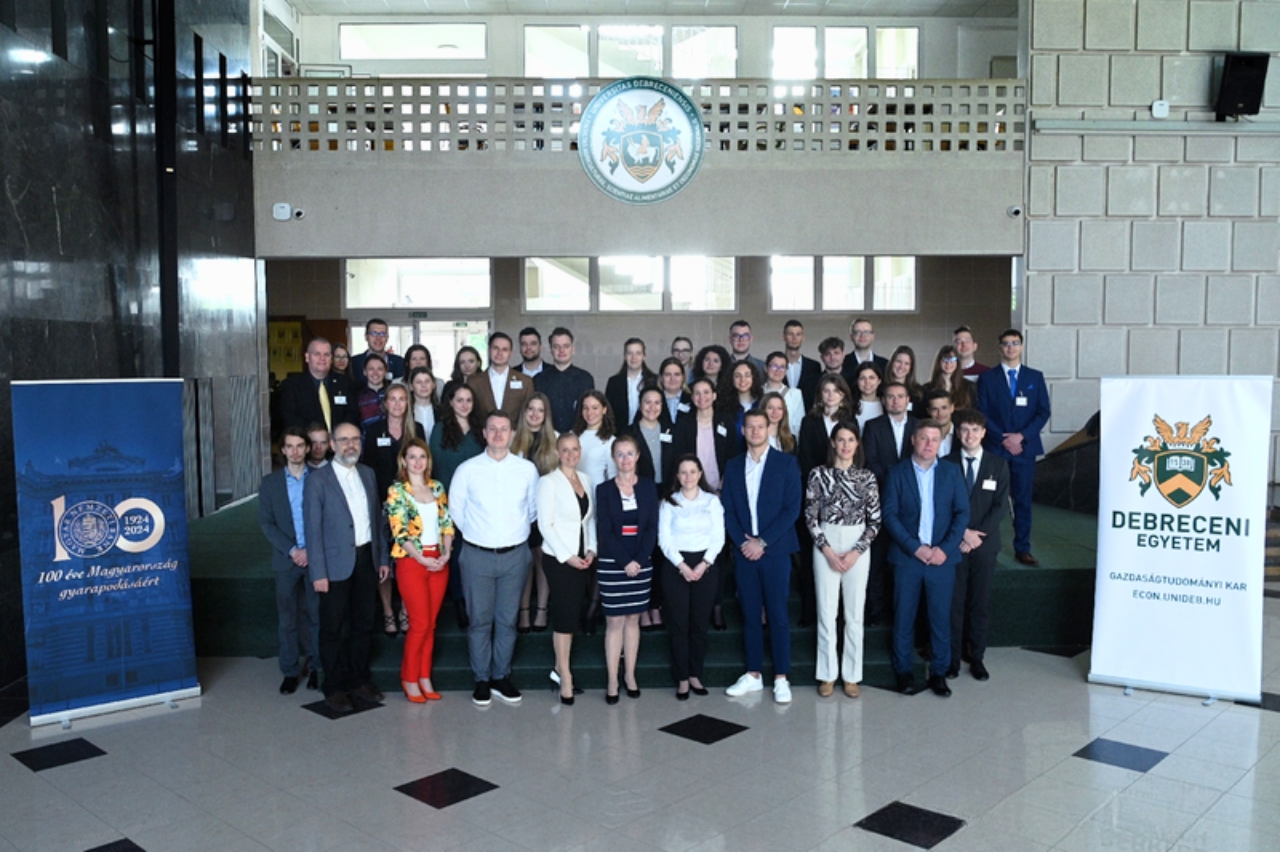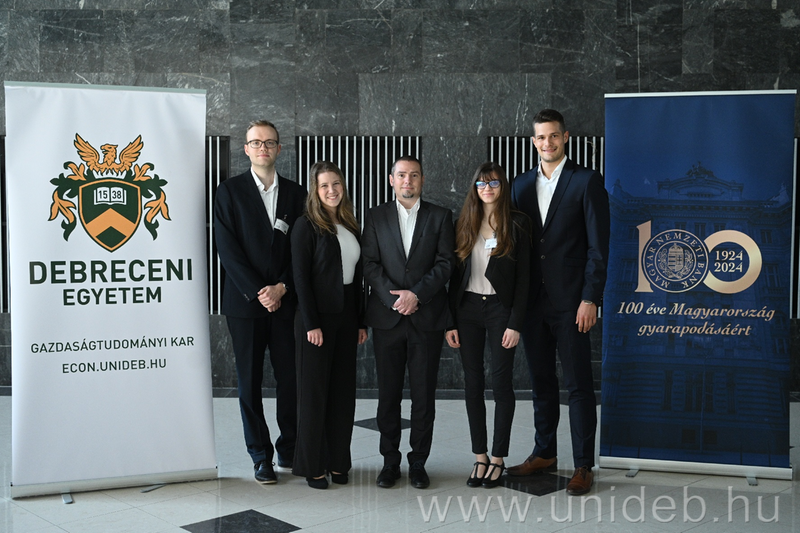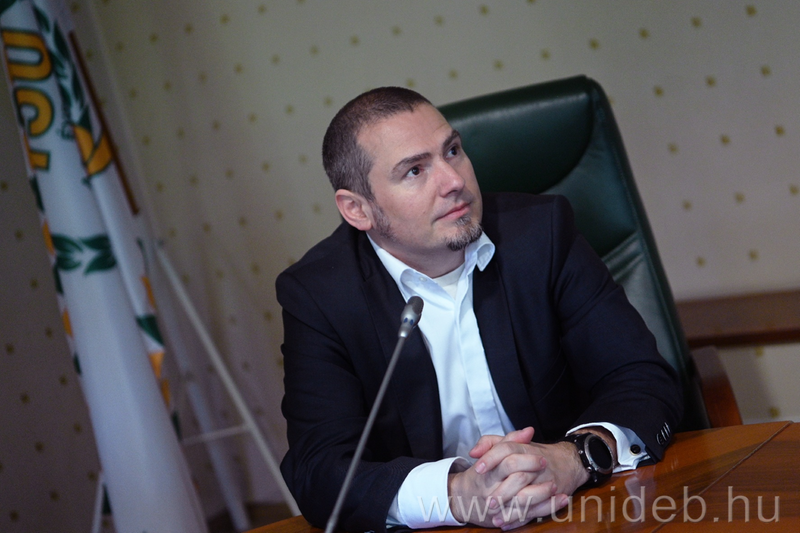Corvinus team defends title for the third time at the Antal Ács Case Study Competition

The ‘Tokaj Tacticians’ team of Corvinus master students came first in the 4th Antal Ács Case Study Competition. For the fourth year in a row, our university has been unbeatable in the competition organised by the Institute of Management and Organisational Sciences at the University of Debrecen’s Faculty of Economics and Business, where teams from Hungarian-speaking higher education institutions of economics compete. The competition was held on the campus of the University of Debrecen between 25-26 April 2024, and this year a record number of eight teams from Hungary and Transylvania competed. Transylvania was represented by the Babeș-Bolyai University of Cluj and the Faculty of Economics of the Sapientia Hungarian University of Transylvania in Miercurea Ciuc.
The usual topics are primarily related to management, management and organisational challenges, organisational development issues and the areas of HR activities. Teams in the competition must solve real problems faced by local businesses. This was no different this year: the teams had to develop an internal awareness-raising programme for the automotive supplier Vitesco Technologies Hungary Kft., which would fit in with the international working environment and sustainability goals of the Debrecen site. In addition to the strategy, the case required the eight teams to present a complex analysis of the impacts of electrification on the automotive industry and regarding the future of electrification.

This year, teams had a ten-hour time slot on the first day to work out their solutions. For several years, a special feature of the competition has been the so-called ‘Meet the Boss’ session, where a team member could ask questions of the company’s managers to solve a problem, but in a way that the answers could be heard by delegates from other teams, too. Then, on the next day of the case solving, the teams presented their ideas and proposals to the jury in 15 minutes.
When the results were announced, the Corvinus team was declared the clear winner by the jury, highlighting the feasible proposals, the clear structure, the sound financial forecasting, the professional environmental analysis and the excellent method of presentation that characterised the team’s performance. The second place on the podium went to the University of Pannonia, while the team from Babeș-Bolyai University came third.

The members of the team of the Corvinus University of Budapest were Fanni Fakli, Péter Koncz, Dániel Kostyal and Zsanett Örsi, first- and second-year students of the Organisations and Management and Enterprise Development master programmes, and their coach was Dr. Miklós Stocker, Head of the Institute of Management.
The team members evaluated the competition after the announcement of the results. Fanni Fakli highlighted the communication with the case company: ‘The representatives of Vitesco were really open to our ideas and solutions. During the Meet The Boss session we were able to talk to them fairly directly, and they answered all our questions and provided as many details as possible. It was a special experience to solve the problem by developing a more direct relationship with the company that provided the case and then to present the proposed strategy to them.’ Dániel Kostyal emphasized the special structure of the case study: ‘In the case, we had to answer several questions, such as the qustion about the future of the automotive industry and electrification. This presented new challenges for the team, and made us think about solutions other than the traditional case-solving structures.’ Péter Koncz pointed out the usefulness of the Leadership for Change subject: ‘The lecture on the challenges of the global energy industry was a great help in developing a complex analysis’. Zsanett Örsi also stressed the usefulness of the Meet the Boss session: ‘The informative nature of the Q&A session meant a lot to us. In the case, there was a lot of data on existing programmes, which, together with the knowledge gained in the Meet the Boss session, helped us to add our suggestions to the existing programmes’.
According to Dr. Miklós Stocker, it is very good that competitions conducted in Hungarian are open to participants from accross the border, too, because this way the Hungarian teams can experience for themselves how Babes-Bolyai, for example, which also has good results at international level, performs. The colleagues at the University of Debrecen organised an interesting and exciting competition, where I was proud to hear our team’s solution and the words of appreciation from the jury. We’ll go again next year!
Congratulations to the team and their coach on their success!